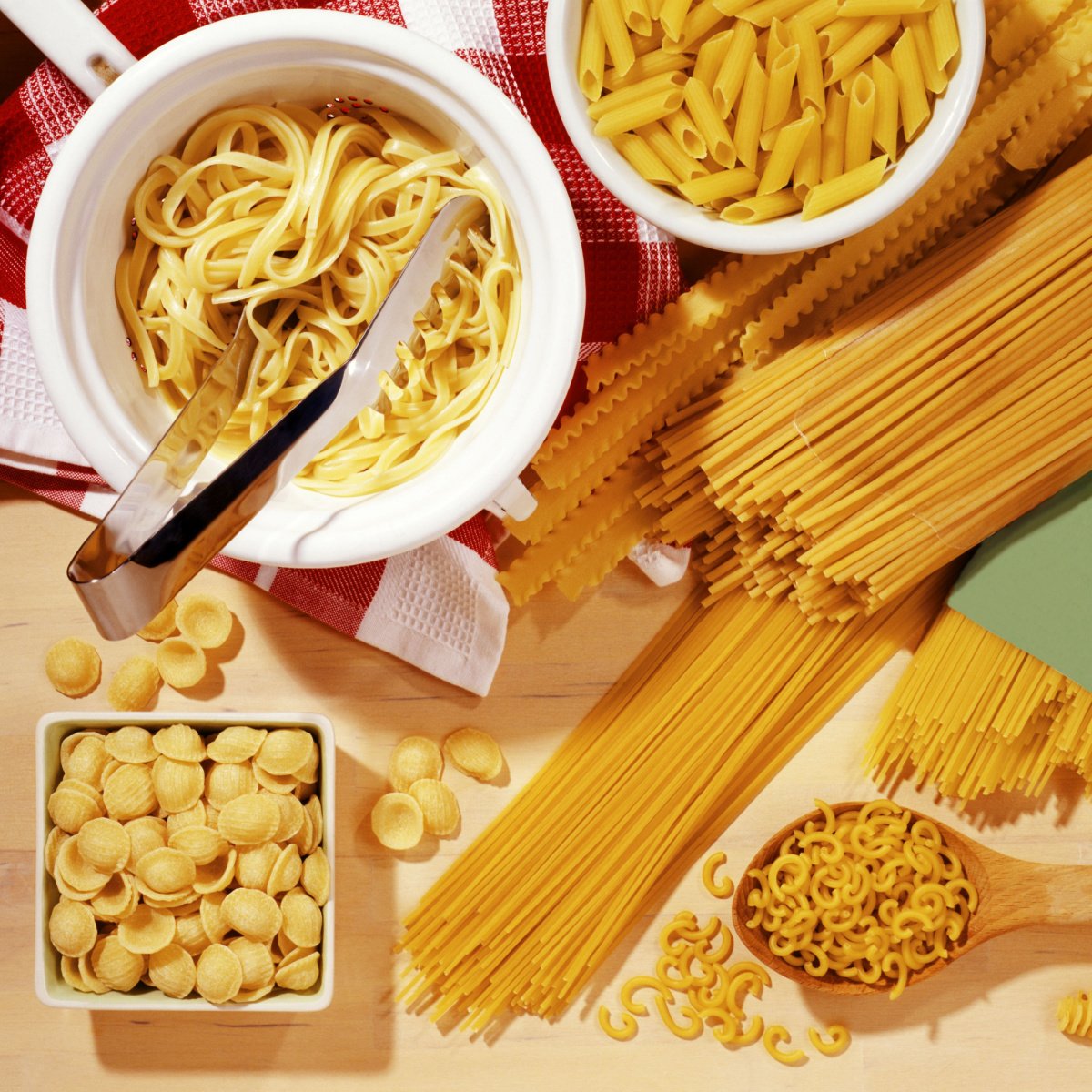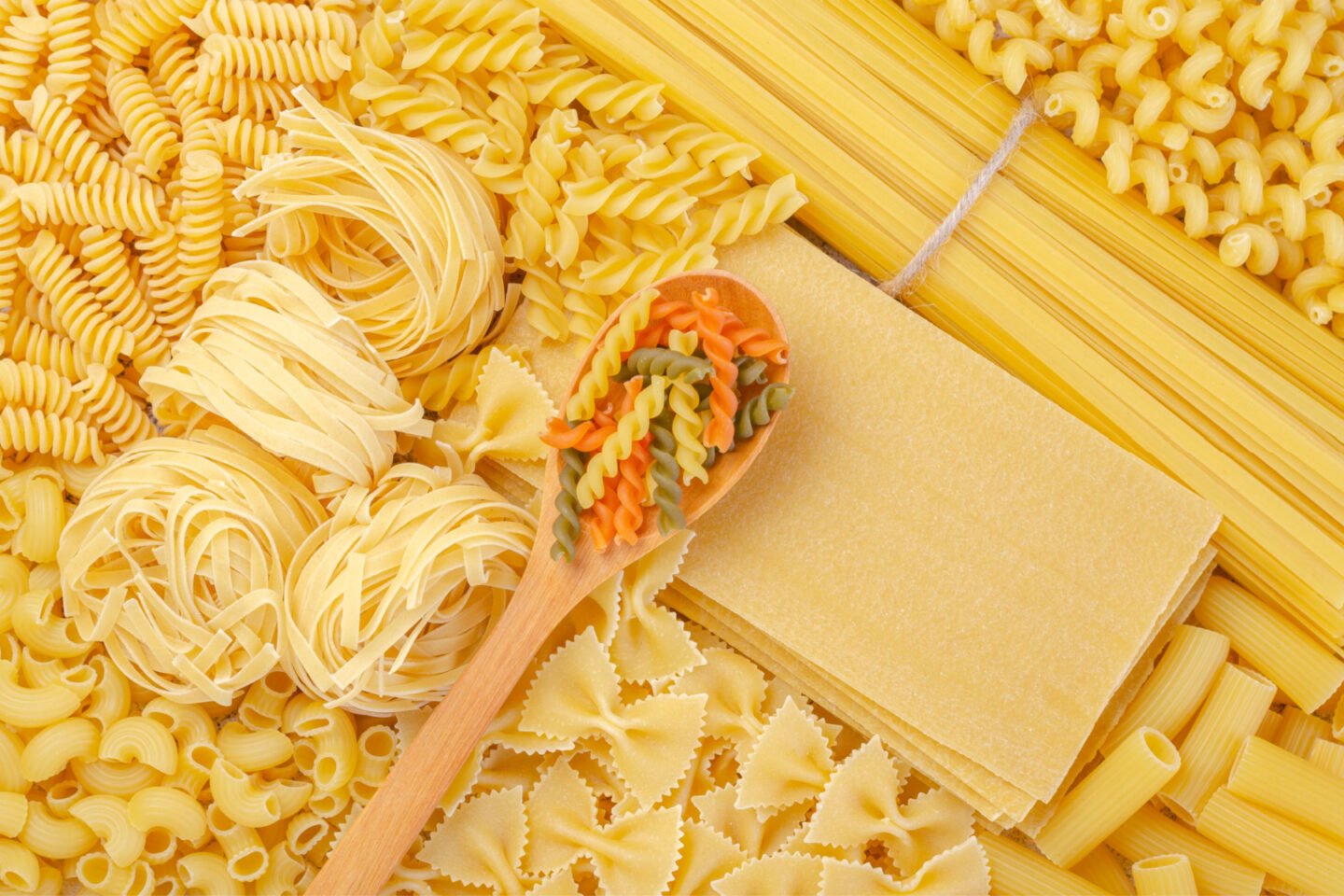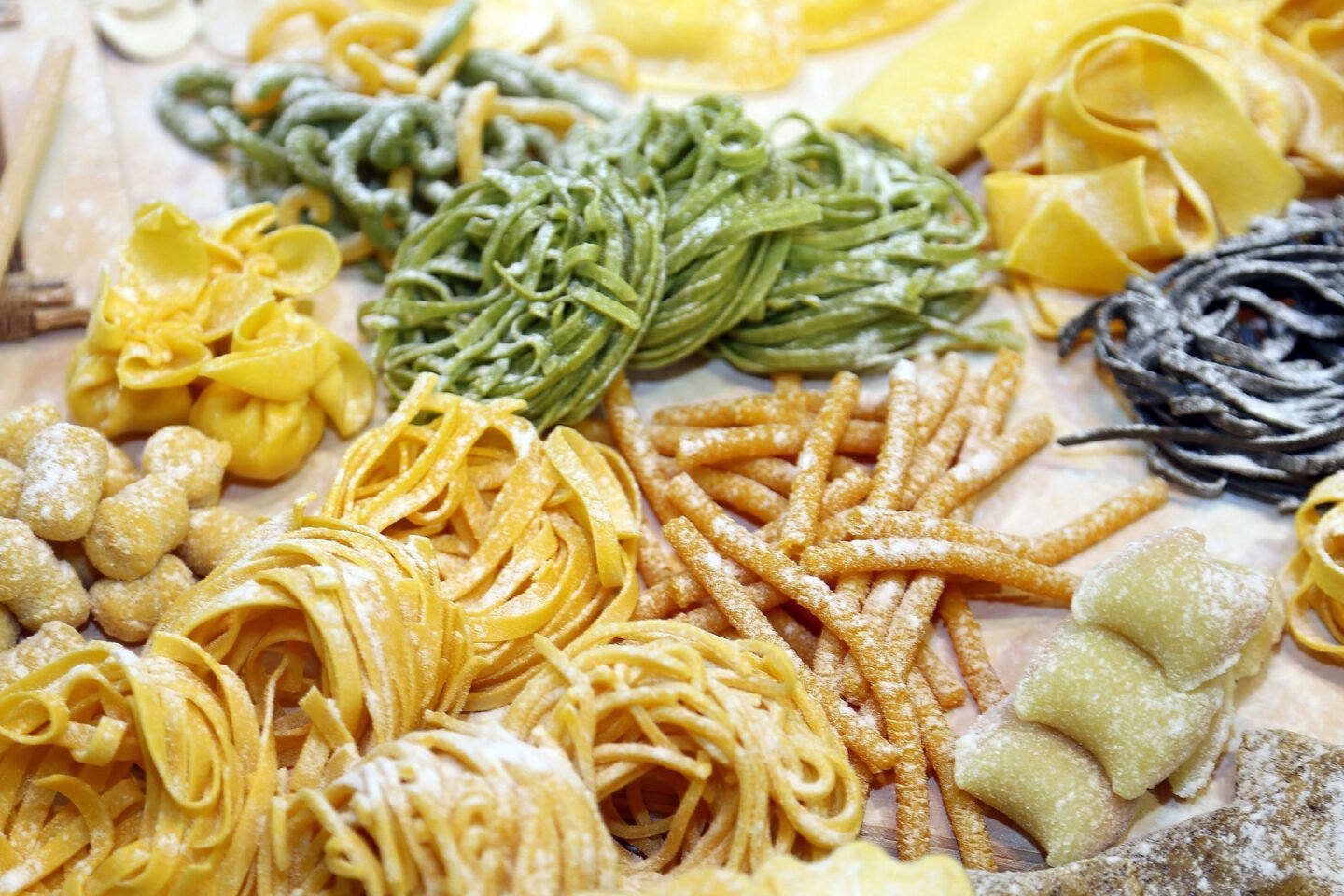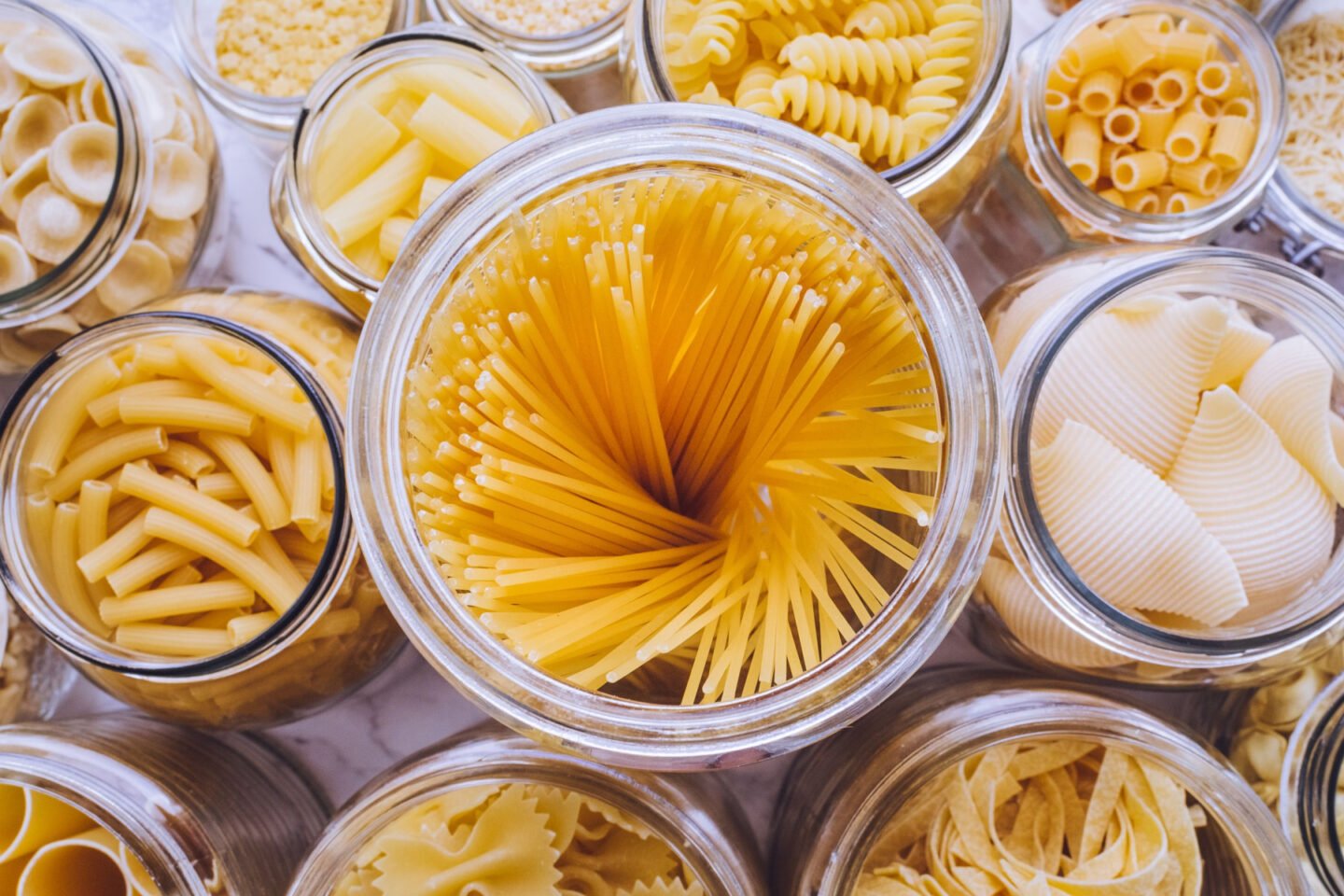Everybody loves pasta, and most of us have some kind of pasta at home. While the term "pasta" refers to an extensive range of dishes made with durum wheat and water or eggs, they are either fresh pasta or dry pasta. You're on the right page if you're wondering how long pasta lasts.

Fresh pasta goes bad after 2 to 4 days in the fridge, while dry pasta does not technically go bad but comes with a "best before" date that predicts how long the pasta could maintain its quality.
While you don't have to place uncooked dry pasta in the fridge, it's important to refrigerate fresh pasta and cooked pasta to extend their shelf life. Read on to learn everything about this topic.
Table of Contents
What is Pasta Made Of?
Before diving into their shelf life, we must understand pasta's basics. Pasta is an unleavened dough made of ground durum wheat, water, or eggs, cut in different shapes and sizes.
The difference between pasta and other types of noodles is the use of durum wheat. Due to its high gluten level and low moisture content, durum wheat is ideal for making pasta.
There are two types of pasta: fresh pasta and dry pasta. While both need boiling water to cook, fresh pasta is softer and cooks easier, while dry pasta takes longer.
Does Pasta Go Bad?

Like all food, cooked pasta goes bad after 3 to 5 days. On the other hand, uncooked dry pasta lasts up to two years and has a "best before" date on its packaging.
Fresh pasta has a shorter shelf life than dry pasta as it has much more moisture, allowing mold and other microorganisms to grow.
How Long Does Pasta Last?
Here's a quick estimation of how long pasta lasts:
- Dry Pasta - "Best By" date (approximately two years)
- Fresh Pasta - 2 to 3 days in the fridge
- Cooked Pasta - 3 to 5 days in the fridge
Dry Pasta
If properly maintained, dry pasta stays good for up to two years after purchase, or as instructed on the packaging. Due to the lack of moisture, dry pasta does not spoil the way fresh pasta does, but it comes with a "best by" or "consume before" date.
The "best by" date represents the manufacturer's estimate of how long the pasta will keep its quality, not its safety; thus, it is significant and something you should not ignore.
Do note that dry pasta could go rancid when exposed to moisture and mold could grow on it, so be sure to check your pasta before cooking it for safety. To keep them at their best quality, place them in an airtight container and store them in a cool, dry place.
Fresh Pasta
Fresh pasta lasts 2 to 3 days after purchasing it, as long as it stays in the fridge. There are times when fresh pasta lasts up to 4 to 5 days, especially when it remains unopened and refrigerated.
You can also freeze fresh, homemade pasta to keep it fresh for up to a month longer. Lastly, you can try to dry fresh pasta using a dehydrator or leave it uncovered in a cool, dry place overnight.

Cooked Pasta
Cooked pasta keeps its quality for 3 to 5 days and then shows signs of spoilage. This estimation also differs depending on what you put in your pasta. For instance, meat, dairy products, and tomato sauce shorten food shelf life, so you have to watch out for that.
If you have leftover pasta, like cooked spaghetti, you can freeze it in a freezer bag and store it for up to a month. However, when doing this, ensure that the pasta does not show any signs of spoilage.
How To Tell If The Pasta Has Gone Bad
Dry Pasta
While dried pasta is considered shelf stable and does not go bad as long as you don't open it, there might be instances where moisture gets in the packaging, causing the dry pasta to go bad.
Here's a list of things you should look out for in dry pasta when it has gone bad.
- Discoloration - Dried pasta often appears yellow, but if you start noticing white spots on them, it might have grown some mold or just lost its quality due to oxidation.
- Presence of mold - Mold appears as white, yellow, green, gray, and black spots on uncooked pasta. This should tell you that your pasta is contaminated and you should not cook or eat them. Also, watch out for pantry bugs.
- Slimy texture - Slime happens when dried pasta gets exposed to moisture.
- Rancid smell - When your dried pasta develops a sour or foul odor, it starts deteriorating.
Fresh Pasta and Cooked Pasta
It's easier to tell if fresh, cooked, or homemade pasta has gone bad. You don't have to taste it to know that it has spoiled. Here are the most common signs:
- Gooey and slimy pasta - Once your pasta salad or egg noodles start to become gooey and slimy, you should not consume it to avoid any foodborne illness.
- Unpleasant smell - The unpleasant smell you get from spoiled cooked pasta is worse than what you smell from spoiled dried pasta, especially if it has meat or tomato sauce.
- Presence of mold - You should inspect the pasta for any discoloration or growth, as it indicates the growth of microorganisms.
How To Properly Store Pasta (Extend Pasta Shelf Life)

Dry Pasta
You should store dry pasta in a cool, dry place along with shelf-stable ingredients like olive oil, vinegar, and canned goods. Ensure you keep it in an airtight container and free from pantry bugs.
Fresh Pasta
Storing fresh pasta is trickier, but the safest way is to refrigerate them, including cooked pasta leftovers. You can also freeze pasta to make it last longer, but make sure not to put warm pasta in an airtight container because that makes bacteria grow.
Can You Eat Spoiled Pasta
You should never eat spoiled pasta. This includes spoiled raw pasta or plain pasta, sauced pasta, pasta salad, pasta sauce like spaghetti sauce, egg pasta, or even frozen pasta.
As a part of food safety protocols, you should never eat anything that has been spoiled to prevent contracting any foodborne illness caused by bacteria.
Bacillus cereus is a type of bacteria that causes food poisoning. You can get this bacterium from eating spoiled food, especially food with lots of carbohydrates like pasta and rice.
Related Questions
When it comes to taste and ease of preparation, fresh pasta wins out. Fresh pasta is smoother, softer, and has a richer flavor. However, it has a short shelf life.
Yes, you can eat old pasta or pasta past its "best by" date, as long as you don't notice any spoilage. However, the taste may not be as great as a new batch.

Leave a Reply